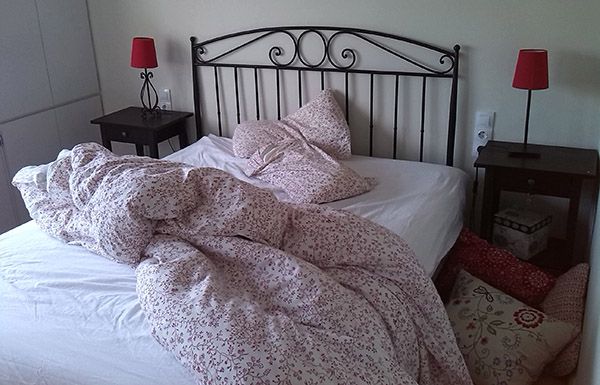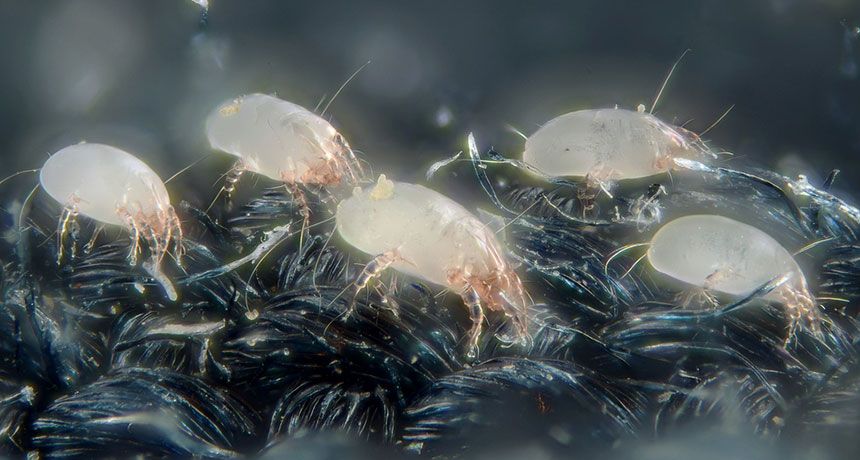When I was a kid, we had a list of chores we needed to complete in order to get our allowance. Among those chores was "make your bed" which was not an unreasonable request. Still, I would rarely do it, citing the fact that I would just be getting right back into it when I got home. If I did make the bed, I'd throw my comforter over everything and call it a day (I was a difficult child).
But little did I know, there was a team of scientists waiting to prove that making your bed every morning isn't actually a good idea.

It has been suggested in the past that making your bed can have a positive effect on your mental health.
"Making your bed every morning is correlated with better productivity, a greater sense of well-being and stronger skills at sticking with a budget," writes Charles Duhigg in his book, "The Power of Habit."
But Dr. Stephen Pretlove says it could be bad for your physical health to do the same.
If you hate bugs, you're going to want to read this. Ever night, we share our beds with 1.5 million or so dust mites, which produce allergens that can be inhaled during sleep. The mites are happiest when they're in warm, damp environments. When you make your bed in the morning, you're locking in the sweat and moisture you've released while sleeping, which provides an ideal environment for these bugs to thrive.
NOT making the bed can allow the moisture to dry out, and in turn, kill the mites.
"We know that mites can only survive by taking in water from the atmosphere using small glands on the outside of their body," Dr. Pretlove said. "Something as simple as leaving a bed unmade during the day can remove moisture from the sheets and mattress so the mites will dehydrate and eventually die."

Dr. Matt Hallsworth says this information could help those who suffer from allergies.
"House-dust mite allergen can be an important trigger for many people with asthma, but is notoriously difficult to avoid," he said.
"Mites are very important in asthma and allergy and it would be good if ways were found to modify the home so that mite concentrations were reduced," Professor Andrew Wardlaw agreed.
However, Wardlaw doesn't think avoiding making the bed will help in the long run.
"Most homes...are sufficiently humid for the mites to do well and I find it hard to believe that simply not making your bed would have any impact on the overall humidity," he said.

